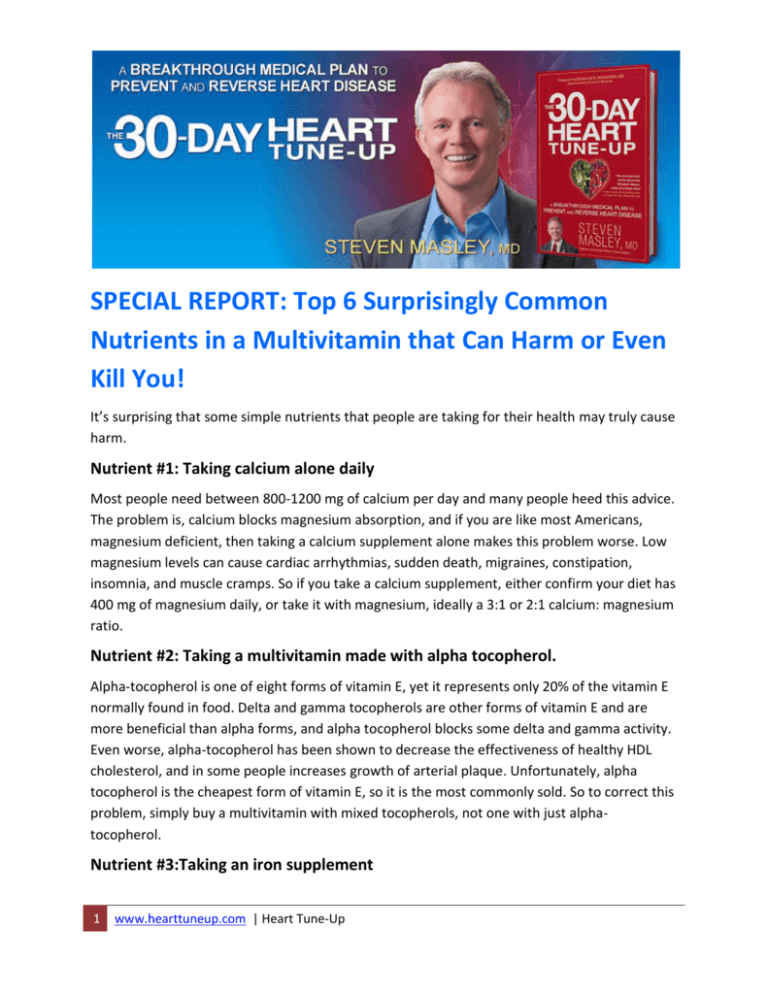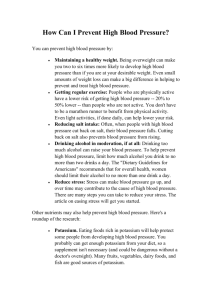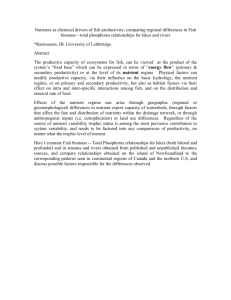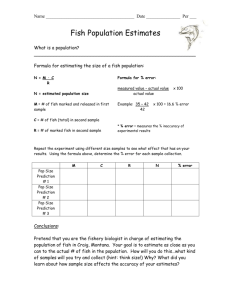SPECIAL REPORT: Top 6 Surprisingly Common Nutrients in a
advertisement

SPECIAL REPORT: Top 6 Surprisingly Common Nutrients in a Multivitamin that Can Harm or Even Kill You! It’s surprising that some simple nutrients that people are taking for their health may truly cause harm. Nutrient #1: Taking calcium alone daily Most people need between 800-1200 mg of calcium per day and many people heed this advice. The problem is, calcium blocks magnesium absorption, and if you are like most Americans, magnesium deficient, then taking a calcium supplement alone makes this problem worse. Low magnesium levels can cause cardiac arrhythmias, sudden death, migraines, constipation, insomnia, and muscle cramps. So if you take a calcium supplement, either confirm your diet has 400 mg of magnesium daily, or take it with magnesium, ideally a 3:1 or 2:1 calcium: magnesium ratio. Nutrient #2: Taking a multivitamin made with alpha tocopherol. Alpha-tocopherol is one of eight forms of vitamin E, yet it represents only 20% of the vitamin E normally found in food. Delta and gamma tocopherols are other forms of vitamin E and are more beneficial than alpha forms, and alpha tocopherol blocks some delta and gamma activity. Even worse, alpha-tocopherol has been shown to decrease the effectiveness of healthy HDL cholesterol, and in some people increases growth of arterial plaque. Unfortunately, alpha tocopherol is the cheapest form of vitamin E, so it is the most commonly sold. So to correct this problem, simply buy a multivitamin with mixed tocopherols, not one with just alphatocopherol. Nutrient #3:Taking an iron supplement 1 www.hearttuneup.com | Heart Tune-Up If you have heavy menses, or are a rapidly growing child, then you may need to take an iron supplement to avoid anemia. However, most people who take iron are not anemic and don’t need the extra iron which will actually make them age faster. Iron is an oxidant and in excess is harmful to your heart (taking too much iron will rust you on the inside). If you are anemic and need iron, then please avoid forms like iron sulfate that are harsh on your intestinal system; instead, look for protein bound forms, like iron glycinate or an iron chelate. Nutrient #4: Taking Beta Carotene There are nearly 300 pigments in fruits and vegetables and one of the primary groups of chemical compounds with color are called carotenoids. One of those carotenoids is beta carotene which has a strong red-orange color. The problem with using beta carotene alone in a supplement is that there are many valuable pigments in our diet, such as lycopene and lutein, and adding one in excess can block the absorption of many others. Because it is cheaper than using a mixed carotenoid form, many manufactures use it in their formulations. Another concern with beta carotene is that smokers covert it into something that causes cancer. The goal is to take a supplement that provides mixed carotenoids, not just beta carotene itself. Nutrient #5: Taking Poor Quality Fish oil High quality fish oil has several health benefits that include: Less risk for heart attack and stroke, especially in people with known cardiovascular disease Improved brain performance and speed, and likely a lower risk for Alzheimer's disease Decreased inflammation and improvement in arthritis symptoms (It sure makes my joints feel better!) Decreased risk for auto-immune diseases, such as skin conditions and inflammatory bowel disease The problem is that most fish sold in the USA is cheap, often loaded with rancid fats (that is why is tastes bad), and I believe that eating rancid fish oil increases inflammation, and can even cause cancer. I recommend you either take fish oil directly from a glass bottle, or if taking capsules, always poke a needle in one capsule from the bottle and taste it to confirm the oil is fresh. It won’t taste like lemonade, it is fish oil, but it should taste pleasant, it shouldn’t taste foul or rancid. As an example, several studies that have looked at blood levels of fish oil in humans have shown higher levels of EPA and DHA are associated with increased risk with prostate cancer, yet the only study that looked at blood levels and looked at the source of fish oil showed that high quality fish oil decreases prostate cancer risk, it doesn’t increase it. (A study by Torfadottir JE et al, PLoS One 2 www.hearttuneup.com | Heart Tune-Up 2013 April 17;(8(4) compared fish intake and fish oil intake separately with prostate cancer risk in 2268 men in Iceland. In this study, high qualify fish oil in this study was shown to decrease the risk for prostate cancer (this was a European study that has quality standards for fish oil). The bottom line is that eating fresh, small-mouth (low mercury), wild fish and taking fish oil are good for our health, but don’t be fooled into taking cheap fish oil that might do you harm. Nutrient #6: Taking Minerals with oxides. Oxides won’t kill you, but they do upset your stomach and can cause a variety of gastrointestinal symptoms. When you see magnesium oxide on an ingredient, this means they are using a cheap ingredient. Better would be magnesium citrate. And much better is magnesium that is bound to protein, such as magnesium glycinate, magnesium malate, or a magnesium chelate. Bad Habit #1: And for good measure, let me throw in a habit that can be harmful to your heart health as well. The weekend warrior overdoes it. We need to be more active, and the weekend is often a great time to catch up on chores such as cleaning up the yard. The challenge is when you overdo it for a prolonged period of time, you exhaust yourself and put yourself at risk for heart troubles. Most people don’t have any idea how fit they are and they try to work out either too easily, or worse, at levels they haven’t achieved for years. Consider taking a simple fitness test outlined in The 30-Day Heart Tune-Up, so you can clarify your optimal workout zone, and save yourself from injury or harm. Steven Masley, M.D. is a physician, nutritionist, trained chef, & a fellow with the American Heart Association. His passion is empowering people to achieve optimal health through lifestyle changes. Dr. Masley is a Clinical Assistant Professor at the University of South Florida, and he has published several health books, including The 30-Day Heart Tune-Up, a breakthrough medical program to tune your heart, energy, waistline, and sex life. His work has been featured on Public Television, the Discovery Channel, the Today Show, plus over 250 media interviews. For additional information, visit his website: www.HeartTuneUp.com. 3 www.hearttuneup.com | Heart Tune-Up









